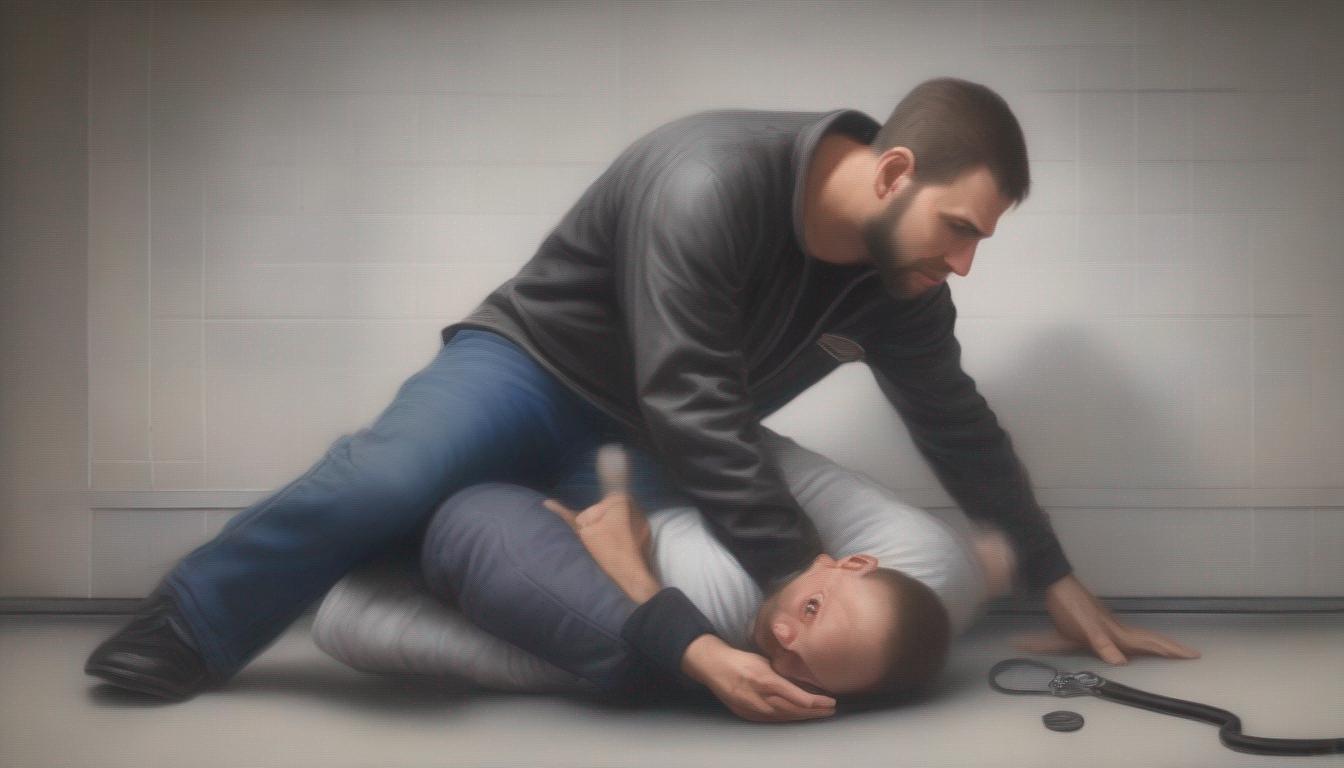Legal principles governing self-defense in cases of killing and the potential for criminal charges
Legal Considerations in Cases of Self-Defense Resulting in Fatality
Under the legal framework governing self-defense, the right to protect oneself or others from harm is recognized across the United States. However, the question of whether someone can go to jail for killing another person in self-defense is a complex issue that depends on various factors and circumstances.
Understanding Self-Defense Laws
Self-defense laws vary from state to state, but they generally allow individuals to use reasonable force to defend themselves against imminent harm. The use of lethal force is typically justified when a person reasonably believes that such force is necessary to prevent death or serious bodily harm to themselves or others.
Justifiable Homicide
When a killing occurs in self-defense, it may be classified as justifiable homicide. Justifiable homicide is a legal term used to describe a killing that is considered lawful and not subject to criminal prosecution. To claim justifiable homicide, the individual must demonstrate that their actions met the legal criteria for self-defense within the jurisdiction where the incident occurred.
Burden of Proof
In cases of self-defense resulting in death, the burden of proof usually falls on the individual who used force to establish that their actions were justified. This often involves demonstrating that they acted in a reasonable and necessary manner given the circumstances they faced. The standard of proof may vary, with some states requiring proof beyond a reasonable doubt and others using a preponderance of the evidence standard.
Investigation and Prosecution
Even when a killing is done in self-defense, law enforcement authorities may conduct an investigation to determine the circumstances surrounding the incident. Prosecutors will assess whether the use of force was truly justified under the law. If there are doubts about the validity of the self-defense claim, criminal charges such as manslaughter or murder could be filed.
Stand Your Ground and Castle Doctrine
In some states, specific laws such as "Stand Your Ground" or the "Castle Doctrine" provide further legal protection for individuals acting in self-defense. These laws generally remove the duty to retreat before using force in situations where a person feels threatened, whether in their home (Castle Doctrine) or in other locations (Stand Your Ground).
Legal Assistance
Navigating the legal complexities of self-defense cases involving fatalities can be challenging. It is crucial for individuals to seek legal counsel from experienced criminal defense attorneys who can provide guidance and representation throughout the legal process. A skilled lawyer can help build a strong defense strategy and protect the rights of the accused.
While self-defense is a fundamental right, the use of lethal force resulting in death carries significant legal implications. Understanding the relevant self-defense laws, establishing justifiability, and having competent legal representation are vital in addressing the possibility of criminal charges in cases of self-defense. Each situation is unique, and seeking legal advice early on can make a crucial difference in the outcome of such cases.
Strategies for navigating the legal intricacies of a self-defense case to avoid incarceration
Self-defense cases can be legally complex, especially when they involve the use of lethal force. Understanding the nuances of self-defense laws is crucial to avoid incarceration when faced with a life-threatening situation. Here are some strategies for navigating the legal intricacies of a self-defense case to protect yourself from criminal liability.
Knowing Your State Laws on Self-Defense
Each state in the United States has its own set of laws regarding self-defense. It is essential to familiarize yourself with the specific statutes in your state to understand when the use of force is considered justifiable. Some states have a "stand your ground" law that allows individuals to defend themselves without retreating, while others require individuals to retreat if possible before using force.
Proving Reasonable Belief of Imminent Harm
In a self-defense case, the key factor is proving that you had a reasonable belief that you were facing imminent harm or danger. This belief must be based on circumstances that would cause a person of ordinary prudence to act in a similar manner. Providing evidence to support your claim that you acted out of genuine fear for your safety is crucial in establishing a strong defense.
Using Proportionate Force
Another critical aspect of a successful self-defense claim is the use of proportionate force. This means that the level of force used in response to a threat must be reasonably necessary to counter the perceived danger. Using excessive force beyond what is necessary to neutralize the threat can weaken your self-defense argument and potentially lead to criminal charges.
Seeking Legal Counsel Immediately
If you find yourself in a situation where you had to defend yourself using force, it is imperative to seek legal counsel as soon as possible. An experienced criminal defense attorney can guide you through the legal process, help gather evidence to support your case, and represent you in court if necessary. Having a knowledgeable advocate on your side significantly increases your chances of a favorable outcome.
Cooperating with Law Enforcement
When law enforcement officials arrive at the scene of a self-defense incident, it is essential to cooperate fully with their investigation. Provide a factual account of what transpired, but refrain from making any statements that could potentially incriminate you. It is within your rights to have your attorney present during questioning to ensure that your interests are protected.
Presenting a Strong Self-Defense Case
Building a robust self-defense case requires thorough documentation of the events leading up to the incident. This may include witness statements, medical records if injuries were sustained, and any other relevant evidence that supports your version of events. Presenting a compelling narrative backed by credible evidence is essential in persuading prosecutors and jurors of the legitimacy of your self-defense claim.
Navigating the legal complexities of a self-defense case to avoid incarceration demands a strategic and methodical approach. By understanding relevant self-defense laws, proving the reasonable belief of imminent harm, using proportionate force, seeking legal counsel, cooperating with law enforcement, and presenting a strong defense case, individuals can protect themselves from criminal liability in self-defense situations. Remember, being prepared and informed is key to safeguarding your rights and freedom in challenging legal circumstances.
Key Takeaway:
Key Takeaway:
Understanding the legal principles governing self-defense in cases involving killing is crucial in determining whether one could face criminal charges. While self-defense can be a valid defense in such situations, individuals must navigate legal intricacies carefully to avoid incarceration. By being informed about the laws surrounding self-defense and seeking legal counsel when needed, individuals can better protect themselves in such scenarios. It is essential to remember that each case is unique, and seeking professional guidance is key to navigating the complexities of the legal system and ensuring a fair and just outcome.
Conclusion
In navigating the legal complexities of self-defense cases involving fatal outcomes, individuals must be well-versed in the legal principles governing self-defense. Understanding the nuances of when the use of force is justified and the degree of force permissible in different scenarios is vital. While the law allows for self-defense as a fundamental right, it is crucial to remember that excessive force or disproportionate actions can still lead to criminal charges, even if the intent was to protect oneself or others. By being aware of these boundaries and seeking legal guidance when needed, individuals can better protect themselves within the confines of the law.
Moreover, having a clear strategy for handling a self-defense case is essential for minimizing the risk of incarceration. This includes preserving evidence, such as witness testimonies and physical proof, to support the claim of self-defense. Seeking immediate medical attention if injured and contacting legal representation at the earliest opportunity can also strengthen one’s defense. Additionally, refraining from making any statements to the authorities without legal counsel present is crucial to avoid unintentionally incriminating oneself. By following these strategies, individuals can navigate the legal process more effectively and safeguard their rights in a self-defense situation.
Furthermore, it is important to recognize that each self-defense case is unique and may involve different legal considerations. Factors such as the specific circumstances of the incident, the actions taken by the individuals involved, and the local laws governing self-defense can all impact the outcome of a case. By staying informed about relevant laws and seeking professional legal advice tailored to the specifics of the situation, individuals can make informed decisions and act in a manner that prioritizes their legal well-being.
While the prospect of facing criminal charges for killing someone in self-defense can be daunting, it is possible to navigate the legal landscape effectively with the right approach. By understanding the legal principles that govern self-defense, implementing strategic measures to protect oneself within the confines of the law, and seeking tailored legal guidance, individuals can bolster their defense and mitigate the risk of incarceration. Ultimately, being proactive, informed, and prepared is key to safeguarding one’s rights and interests in a self-defense situation.


